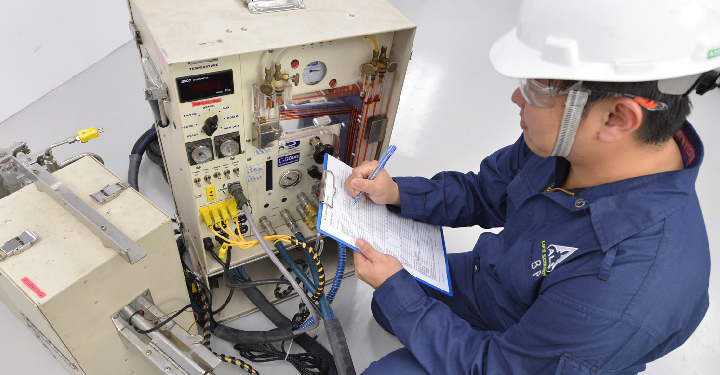Common Electrical Problems in Commercial Buildings
Do-it-yourself instructional manuals and videos about keeping your building’s electrical works in good condition abound, but nothing beats an expert licensed electrician’s skills when it comes to commercial buildings in Singapore that are much more complicated than an average household.
Burnt Out Light Bulbs
Offices need to have functioning light bulbs all the time to complete daily operations, however, electrical devices need occasional fine-tuning, repair, and replacement when overused. A licensed electrician will not just replace the office’s burnt out light bulbs easily, but they can also check for faulty or loose circuit and socket that an amateur eye might overlook.
Flickering or Dim Lights
Dimming or flickering lights are not good for any business, but sometimes replacing the bulbs alone do not do the trick. When bulb replacement does not work, a more serious problem such as a poor connection in the circuit might be the cause. This issue needs to be addressed as soon as possible by an electrician services company in Singapore because it can lead to power arching.
Tripping Breakers
When the office’s circuit is using too much energy, it could be overloading. Ignoring this problem might start a fire, especially if the building constantly uses electronic devices. The best solution is to hire a good electrician to determine whether the office needs to add a circuit or to upgrade its electrical service.
Dead Outlets
Dead outlets can lower office productivity, because most businesses today rely heavily on electronic devices. It could be a sign that there is a poor circuit connection or the circuit breaker has tripped due to an excessive buildup of heat. Call a licensed electrician to inspect the office’s electrical works and prevent outlet wiring melting or fire hazards.

Industrial vs. Commercial vs. Residential Electricians: What’s the Difference?
We get it, there can be a ton of confusion when it comes to different types of electricians.
We’re all electricians, aren’t we all the same? While the three titles may sound similar, they are actually very different. The foundation of the skill set might be in basic electrical knowledge, but the application of their extended training is truly what draws the lines between the three
Education: Residential electricians must obtain a high school diploma, engage in an apprenticeship program, attend classes, 8,000-10,000 hours of on the job experience and the pass a competency exam to then become licensed to perform their work.
Experience: Typically, a residential electrician uses single phase power supplies – 120 or 240 volts.
Commercial Electrician:
Education: Commercial electricians must obtain a high school diploma, engage in an apprenticeship program, attend classes, 8,000-10,000 hours of on the job experience and the pass a competency exam.
Experience: Typically a commercial electrician is performing new construction or installing lighting, receptacles, transformers, and some power distribution.
Worksite: A commercial electrician typically works in commercial buildings, like business offices, retail stores, restaurants and other areas that are readily accessible by the public.
Common jobs: The essential tasks and daily pressures of being a commercial electrician typically involve common electrical repairs and installation of specific equipment. In many cases, the electricians are wiring breaker panels, transformers, generators, lighting, heating and general building requirements.
Industrial Electrician:
Education: Industrial electricians must obtain a high school diploma, engage in an apprenticeship program, attend classes, 8,000-10,000 hours of on-the-job experience and the pass a competency exam.
Experience: Typical experience for an industrial electrician is the installation of process equipment that requires specific knowledge of the manufacturing industry we are in. Wiring in a food processing plant uses different procedures than wiring in a automotive production facility. Understanding the differences in each of the industries is critical for an industrial electrician. A more advanced industrial electrician will be strongly involved in the control wiring and operation of process equipment.
Worksite: An industrial electrician typically works in plants and production facilities with complex, sensitive and expensive machinery and electrical systems. Manufacturing and production facilities have power needs that are far different from the general needs encountered in other avenues of the electrical profession. Many of the industries we work within are pharmaceutical, food processing, chemical, mining, and automotive.
Common Jobs: Industrial electricians maintain a more extensive range of electrical systems, from micro-currents to high voltage components

What can you expect from a job as an electrician?
An electrician is any skilled tradesperson who designs, installs, maintains, and repairs the electrical systems and products used in residential homes, businesses, and factories. Electricians work inside or outside buildings to ensure lights, industrial equipment, and appliances operate safely and reliably. There are many special types of electricians, including residential electricians, who install wiring and solve electrical problems in homes, and inside electricians, who maintain and repair control systems, motors, and electrical equipment in businesses and factories.
Responsibilities
As an electrician, you’re responsible for getting electricity from its source to the places where individuals and business consumers can use it. The specific responsibilities associated with this job may vary depending on the area of specialization,
Work Environment
Electricians may spend their time working inside buildings under construction or renovation or outdoors on power and telecommunications systems. They may work in large spaces or in cramped conditions. These working environments often involve live electrical wires, so they can be quite dangerous if the proper precautions aren’t taken. Often electricians work independently on projects, but they may also be part of a larger construction team.
Schedule
Electricians enjoy year-round job opportunities. Their hours vary depending on their role. Maintenance electricians usually have regular work which they complete in a typical 40-hour week. Most keep regular business hours on weekdays and don’t usually work on weekends, public holidays, or late at night. Some electricians work on-call and put in extra hours to troubleshoot urgent problems.
What Qualifications Are Required to Be an Electrician?
Education
Working as anelectrician is one of the best jobs you can secure with only a high school diploma or its equivalent.

Types of Electricians
If you’re an electrician or an electrical contractor or are thinking of becoming one, it’s important to understand the different types of electricians, the different specialties they can pursue, and the various kinds of licenses. This knowledge will help you determine where you can take your career and how to get where you want to be. Obtaining the right certifications also plays a vital role in reaching those goals
What Types of Electricians Are There?
You can break the types of electricians down into several broad categories based on the kind of work they perform. There are many variations and different levels of certification within each of these areas, but most electricians will fall into one of these two main groups: inside or outside
Inside Electrician
Inside electricians, also sometimes called wiremen, work with the electrical systems in buildings and structures. They may design, install, and maintain these systems to provide the building with reliable electrical power. These workers may specialize in residential, commercial, industrial, or another type of structure. They spend much of their time indoors but may also work on outdoor projects that connect to an indoor system, such as rooftop solar panels. They’re likely to work fairly regular hours
Outside or Line Worker
Outside or line electrical workers, sometimes called linemen, work outdoors on power transmission and distribution lines. The work of these electricians ensures that the electricity produced at power plants can move safely to substations through high-voltage lines, after which it will be sent to homes, commercial buildings, and other facilities. They work with higher voltages than inside electrical workers typically do and are more likely to have to conduct emergency work at odd hours. These are the workers you see outside in protective gear working on utility poles and transmission cables.
What Specializations Are Available to Electricians?
Within these two broad categories, there are many specializations that electricians can choose from. While you might not work exclusively in one of these areas, you may find that a majority of your work is in one or two of them, especially as you progress further into your career. The following are some of the specializations that exist for electricians.
Cost guide: electricians
Trusted Traders¹ to find out how much you might need to pay for a variety of electrical jobs around your home.
Ask electricians to break down the quotes they provide, so you know what you’re being charged for. Get at least three quotes to get a better idea of the going rate for your particular requirements.
Costs for sockets, cables and appliances
Unless otherwise specified, prices include labour and materials but exclude VAT.
Costs for rewiring and electrical inspections
Bear in mind that it will take longer to rewire an occupied house than an empty one, which can affect the cost.
How to save money when hiring electricians
Many electricians will charge per hour or per day, rather than having a set rate for certain types of jobs. You may be able to reduce costs by cutting the time they need to spend preparing for the work, for example by moving furniture out of the way before a rewiring job